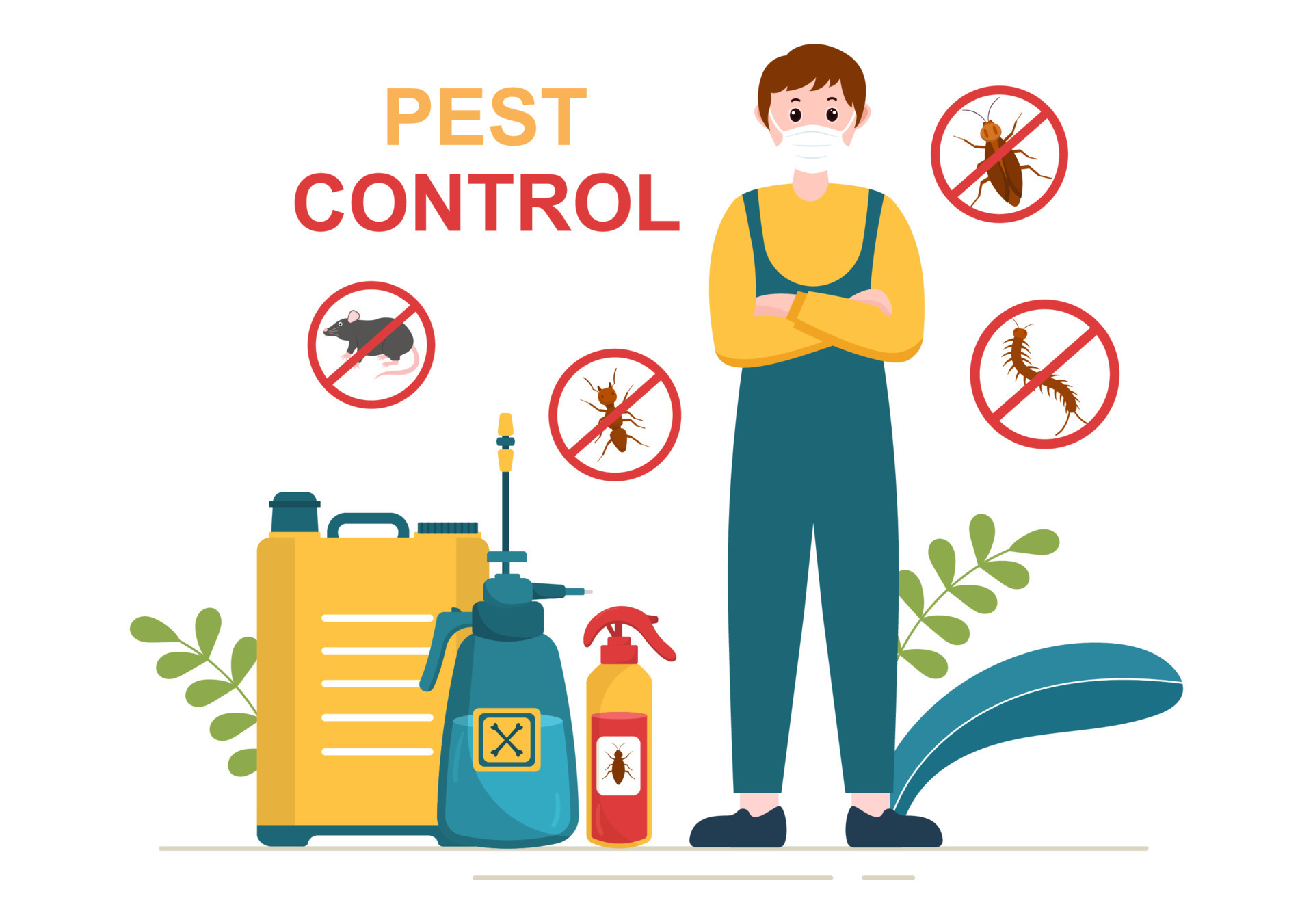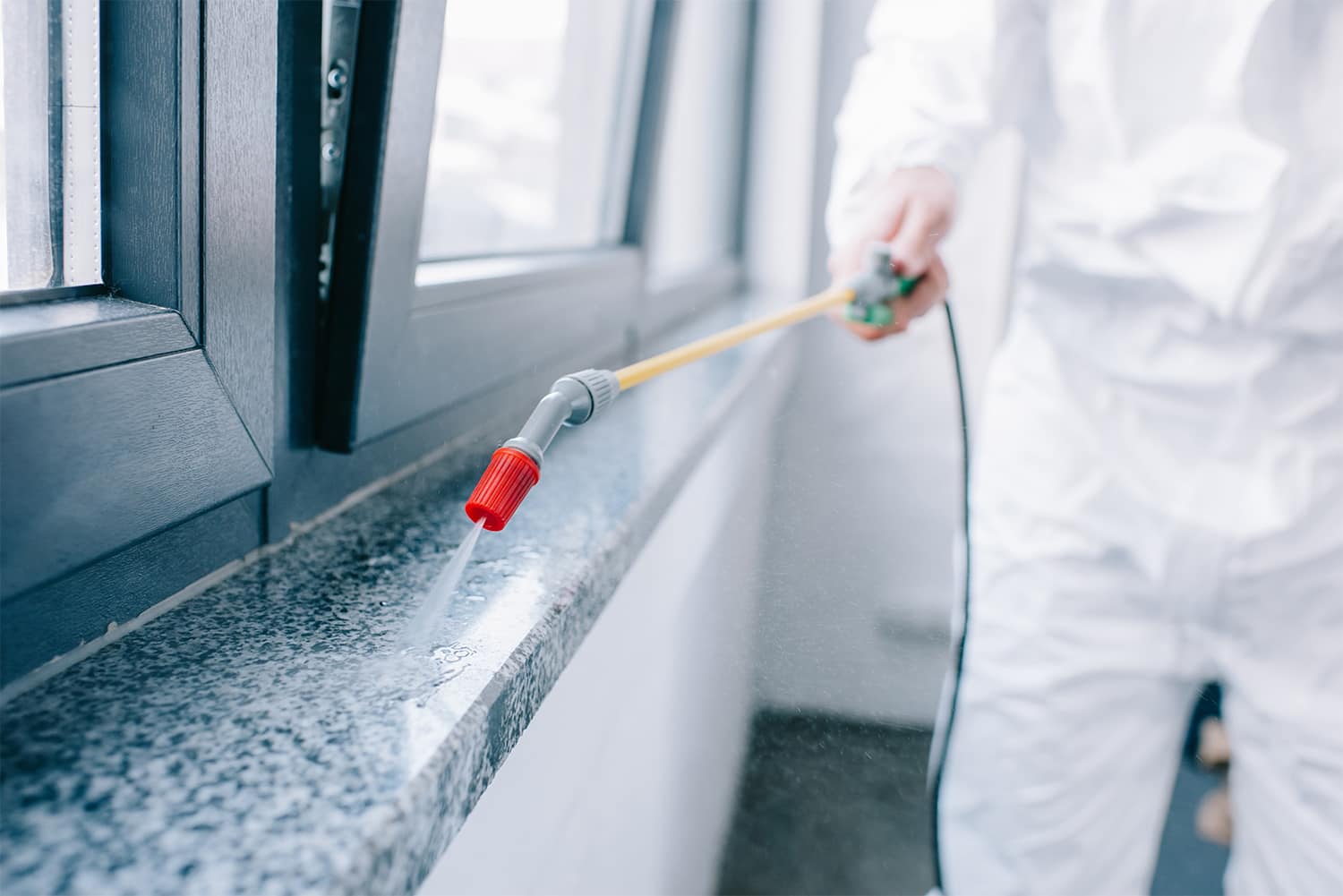Cost Effective Pest Control Auckland Experts: Keep Your Home Safe
Wiki Article
Recognizing Different Kinds of Parasite Control Approaches and Their Performance
The administration of insects is a crucial element of maintaining the health and integrity of various settings, from farming fields to property homes. When taking into consideration insect control approaches, it is crucial to recognize the varied approaches available and their differing degrees of performance. From chemical treatments to biological options, each technique presents one-of-a-kind benefits and limitations. By discovering the nuances of these pest control approaches, a detailed understanding of how to resolve insect issues can be established.Chemical Insect Control Approaches
Chemical insect control approaches play a pivotal role in successfully managing and removing pest problems in different settings. These techniques involve making use of chemical materials to eliminate or discourage bugs such as bugs, weeds, and rodents. One of the essential advantages of chemical insect control is its capability to offer fast and targeted remedies to pest troubles. By utilizing particular chemicals that are designed to target specific parasites, this method can assist protect against damage to plants, frameworks, and human health.Nevertheless, it is crucial to consider the possible threats and downsides related to chemical insect control techniques. Overreliance on chemicals can cause the development of chemical resistance in bugs, making them more challenging to manage in the future. Additionally, using certain chemicals can have damaging impacts on non-target microorganisms, the environment, and human health and wellness if not applied correctly.

Biological Pest Control Approaches
Making use of all-natural predators and pathogens to take care of pest populaces properly, biological bug control methods supply a sustainable and eco-friendly strategy to pest management. By presenting or promoting the activity of microorganisms that naturally prey on or infect bugs, such as ladybugs for aphid control or certain microorganisms for caterpillar invasions, biological control can aid maintain bug populaces at manageable degrees without the demand for artificial chemicals. This method is particularly useful for natural farming methods, as it stays clear of using possibly dangerous materials while keeping crop health and wellness.
Physical Bug Control Techniques
While biological pest control methods focus on harnessing all-natural killers and virus, physical bug control techniques use mechanical and physical barriers to manage pest populations. These approaches are usually taken into consideration eco-friendly as they decrease the usage of chemicals. Physical parasite control consists of methods such as trapping, utilizing barriers like nets or screens, and physically eliminating insects from the area.Catches are frequently used in physical parasite control to catch and get rid of bugs like bugs and rodents. These catches can be baited with food or pheromones to attract the parasites, leading them to a had area where they can be conveniently disposed of. An additional physical method is the usage of obstacles such as screens, webs, or fencings to stop bugs from getting in or infesting certain locations. Mounting fine mesh screens on home windows can help maintain out flies and insects. Pest Control Auckland.
Natural Insect Control Techniques
Including all-natural predators and plant-based repellents is a key technique in executing efficient natural parasite control approaches. By encouraging the presence of useful insects like ladybugs, lacewings, or predatory mites, garden enthusiasts can naturally manage pest populations. These killers feed upon typical yard pests such as aphids, caterpillars, and termites, helping to maintain a well balanced ecosystem without the need for chemical treatments.
Moreover, carrying out social techniques such as plant turning, buddy planting, and keeping appropriate plant health and wellness can also improve the effectiveness of all-natural insect control approaches. These methods not only assist in avoiding parasite invasions but additionally promote biodiversity and total ecological community durability. By incorporating these all-natural approaches, people can properly manage bugs while reducing environmental try these out influence.
Integrated Parasite Monitoring (IPM) Strategy
Executing an Integrated Bug Management (IPM) approach is important for properly managing parasite populations while see this minimizing dependence on chemical pesticides. IPM is a sustainable and extensive strategy that incorporates numerous bug control techniques to attain long-term options. This strategy concentrates on tracking, control, and avoidance to resolve parasite issues in an eco-friendly way.IPM incorporates organic, cultural, physical, and mechanical methods with the strategic and limited use chemicals when needed. By emphasizing proactive steps such as environment alteration, organic control, and exemption, IPM intends to minimize parasite populaces and their influence on the ecosystem. Regular monitoring is vital in IPM to examine bug degrees properly and determine the most appropriate control methods.
Among the vital benefits of IPM is its capability to lessen the dangers related to excessive chemical usage, such as ecological contamination and damage to non-target microorganisms. Furthermore, IPM promotes an extra all natural strategy to pest management by taking into consideration the total environment dynamics. On the whole, the IPM strategy uses a lasting and efficient service for pest control while advertising environmental responsibility.
Verdict
In final thought, comprehending the different kinds of bug control techniques and their efficiency is essential in effectively taking care of parasite invasions. Chemical, biological, physical, and all-natural insect control methods each have their very own benefits and limitations. Integrated Parasite Administration (IPM) technique, which incorporates numerous approaches for sustainable bug control, is significantly being acknowledged as a holistic and eco pleasant solution. By utilizing a combination of these companies, methods and individuals can effectively manage parasites while lessening harm to the atmosphere.Chemical bug control approaches play a crucial duty in effectively managing and eliminating pest invasions in different atmospheres.Using natural predators and pathogens to manage insect populations efficiently, organic bug control techniques use a eco-friendly and sustainable approach to pest monitoring. By promoting the activity or introducing of microorganisms that normally prey on or contaminate parasites, such as ladybugs for aphid control or particular microorganisms for caterpillar problems, organic control can assist maintain insect populations at workable levels without the need for artificial chemicals.While biological this content pest control techniques focus on taking advantage of all-natural predators and virus, physical bug control techniques utilize physical and mechanical obstacles to handle pest populaces. Integrated Insect Management (IPM) strategy, which integrates various approaches for sustainable pest control, is increasingly being identified as a environmentally pleasant and holistic solution.
Report this wiki page